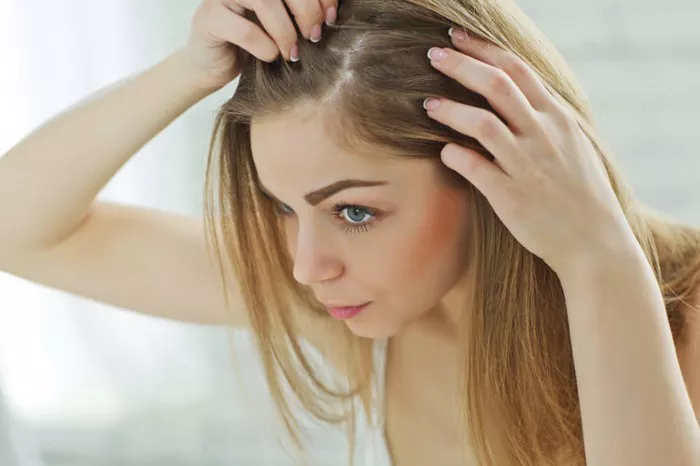The age of 25 is often considered a prime period of life, marked by vitality and youthful exuberance. However, for some individuals, this age may also bring about unexpected concerns, with hair loss taking center stage. In this exploration, we delve into the intricacies of hair health at 25, examining the potential causes, dispelling myths, and providing insights into a phenomenon that can impact self-esteem and well-being during the prime of adulthood.
The Dynamics of Hair Growth in the Mid-Twenties
At 25, individuals are typically experiencing the zenith of their physical health. The body has completed the adolescent growth spurts, and hormonal fluctuations have stabilized compared to the tumultuous teenage years. Despite this, hair loss can still become a concern, prompting questions about what is considered normal in the realm of hair health.
Understanding the natural cycle of hair growth is crucial. Each hair follicle goes through stages of growth, transition, and rest. It is normal to lose around 50 to 100 hairs per day as part of this cycle. However, when this shedding exceeds the norm or leads to visible thinning, it warrants investigation.
Genetics: The Blueprint for Hair Health
One of the primary factors influencing hair loss at 25 is genetics. Family history plays a pivotal role in determining the likelihood of experiencing premature hair thinning or baldness. If close relatives, especially parents or grandparents, had a history of hair loss in their twenties, it increases the probability of a similar occurrence.
Male and female pattern baldness, influenced by genetic factors, can manifest in the mid-twenties. Recognizing familial patterns becomes crucial in understanding the genetic predisposition to hair loss and developing proactive measures.
Hormonal Influences: Beyond Puberty
While hormonal fluctuations are more pronounced during puberty, they continue to play a role in adulthood. At 25, both men and women experience hormonal stability compared to their teenage years. However, imbalances in hormones, particularly androgens, can still contribute to hair loss.
Conditions like polycystic ovary syndrome (PCOS) in females and hormonal imbalances in males may lead to hair thinning. Seeking guidance from healthcare professionals for hormone level assessments can help identify and address potential issues.
Nutritional Factors: The Impact of Diet on Hair Health
The mid-twenties often coincide with a period of increased independence and potentially erratic eating habits. Nutritional deficiencies, particularly in iron, zinc, vitamins A and D, and protein, can adversely affect hair health. Diets lacking essential nutrients can contribute to weakened hair strands and increased shedding.
Adopting a balanced and nutrient-rich diet is essential for maintaining overall health, including the health of hair follicles. Nutritional supplements may be recommended based on individual deficiencies.
Stress and Lifestyle: The Modern Culprits
The demands of contemporary life can subject individuals to heightened levels of stress and lifestyle factors that impact hair health. Stress, both physical and emotional, can lead to a condition known as telogen effluvium, where a significant number of hair follicles enter the resting phase simultaneously, causing increased shedding.
Lifestyle factors such as inadequate sleep, excessive heat styling, and the use of harsh chemical products can contribute to hair damage and loss. Managing stress through relaxation techniques and adopting a hair-friendly lifestyle can mitigate these effects.
Medical Conditions: Investigating Underlying Causes
Beyond the surface, certain medical conditions may manifest as hair loss in mid-twenties individuals. Autoimmune disorders, thyroid imbalances, and skin conditions like alopecia areata can affect the hair follicles, leading to noticeable shedding. Seeking professional medical advice is crucial for diagnosing and addressing these underlying conditions.
Conclusion: Navigating the Terrain of Mid-Twenties Hair Loss
Hair loss at 25 may feel untimely and perplexing, but a nuanced understanding of the contributing factors is key to addressing concerns effectively. Genetic predisposition, hormonal influences, nutritional factors, stress, and underlying medical conditions can all contribute to hair loss in young adults.
Consulting healthcare professionals, dermatologists, or trichologists specializing in hair health is essential for a comprehensive evaluation. A personalized approach, which may include lifestyle modifications, nutritional interventions, or medical therapies, can guide individuals toward effective management.
In conclusion, the normalcy of losing hair at 25 is contingent on a myriad of factors, and acknowledging the complexity of this issue is paramount. With advancements in medical and dermatological sciences, there are avenues available to address and manage the impact of mid-twenties hair loss, fostering a journey of self-confidence and well-being amid the evolving landscape of adult life.

